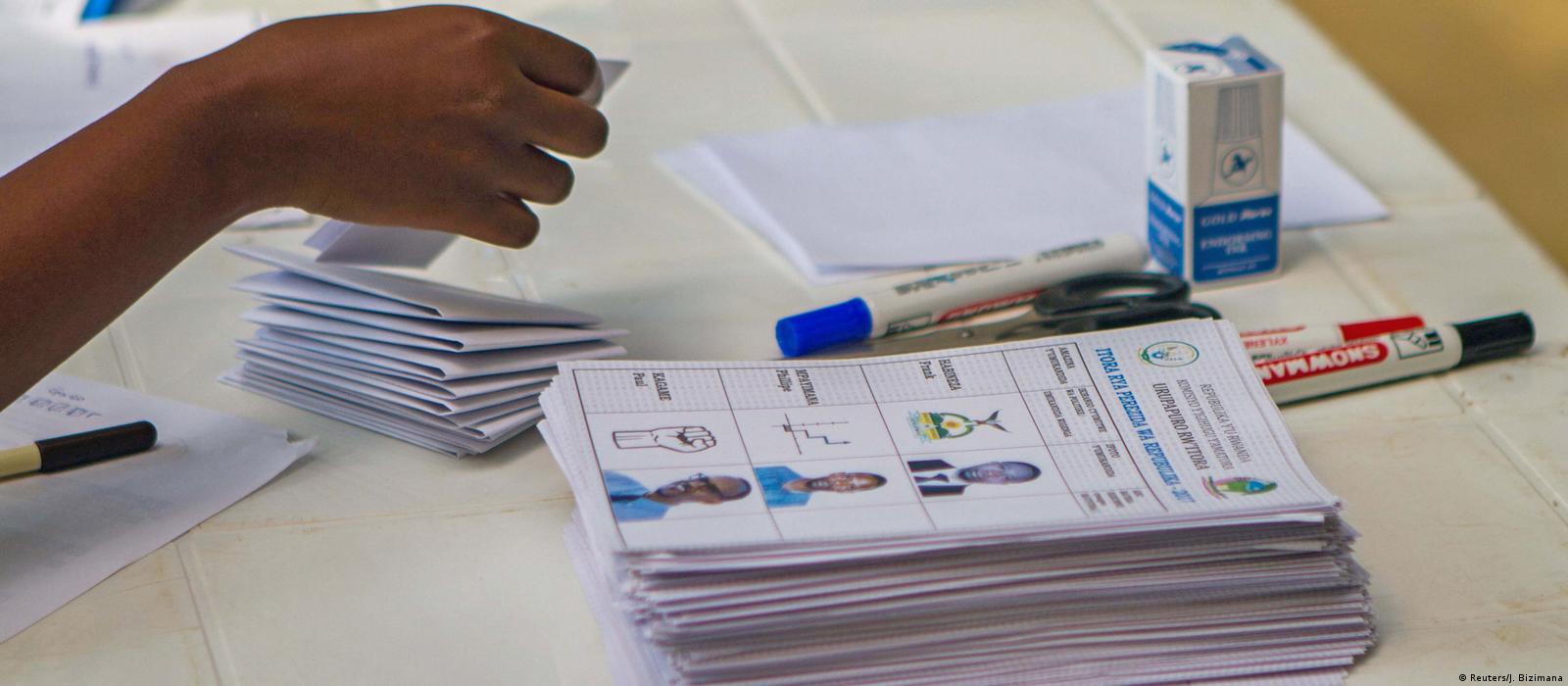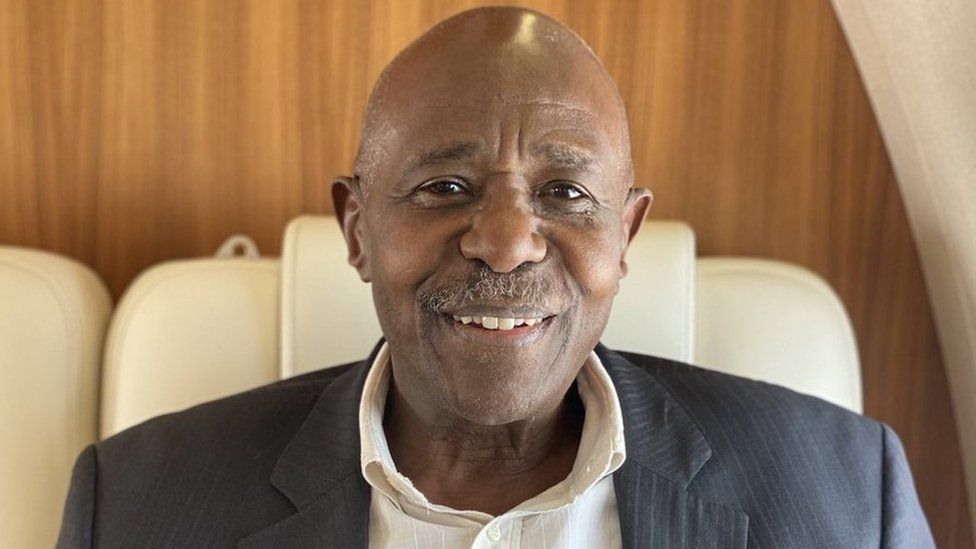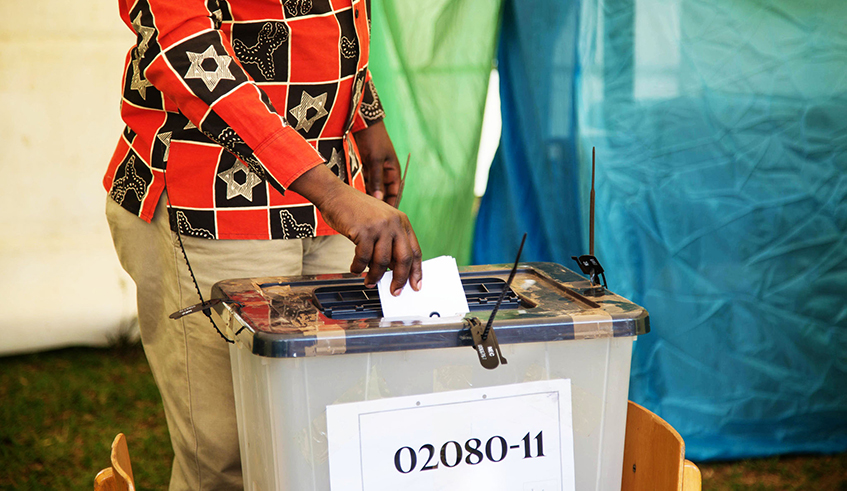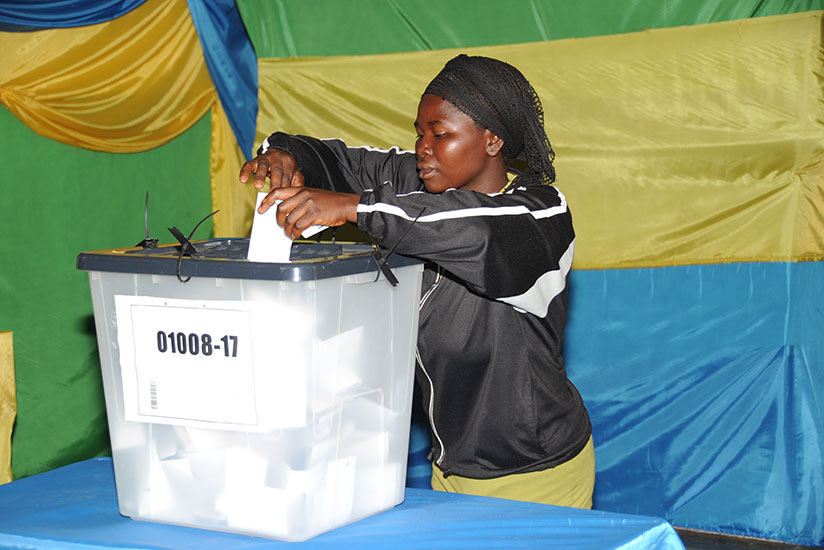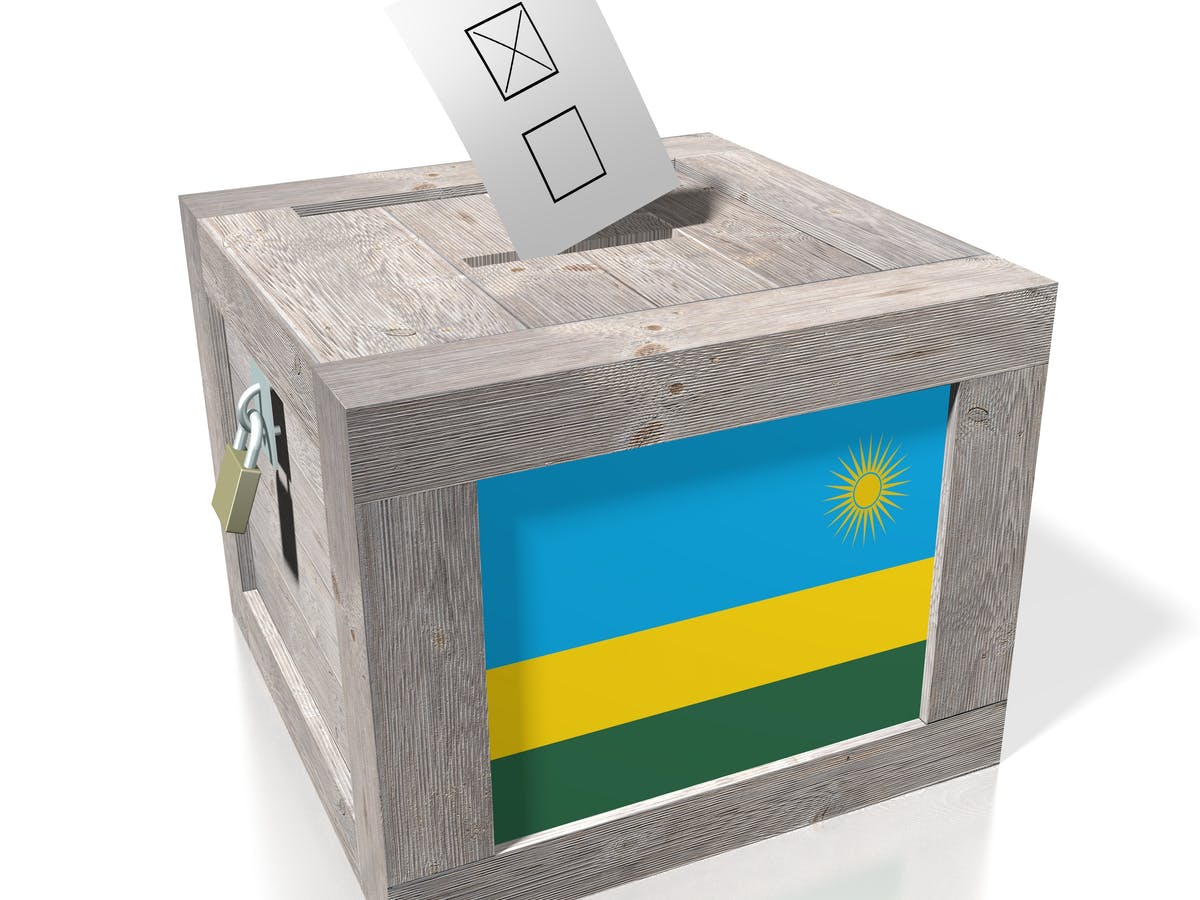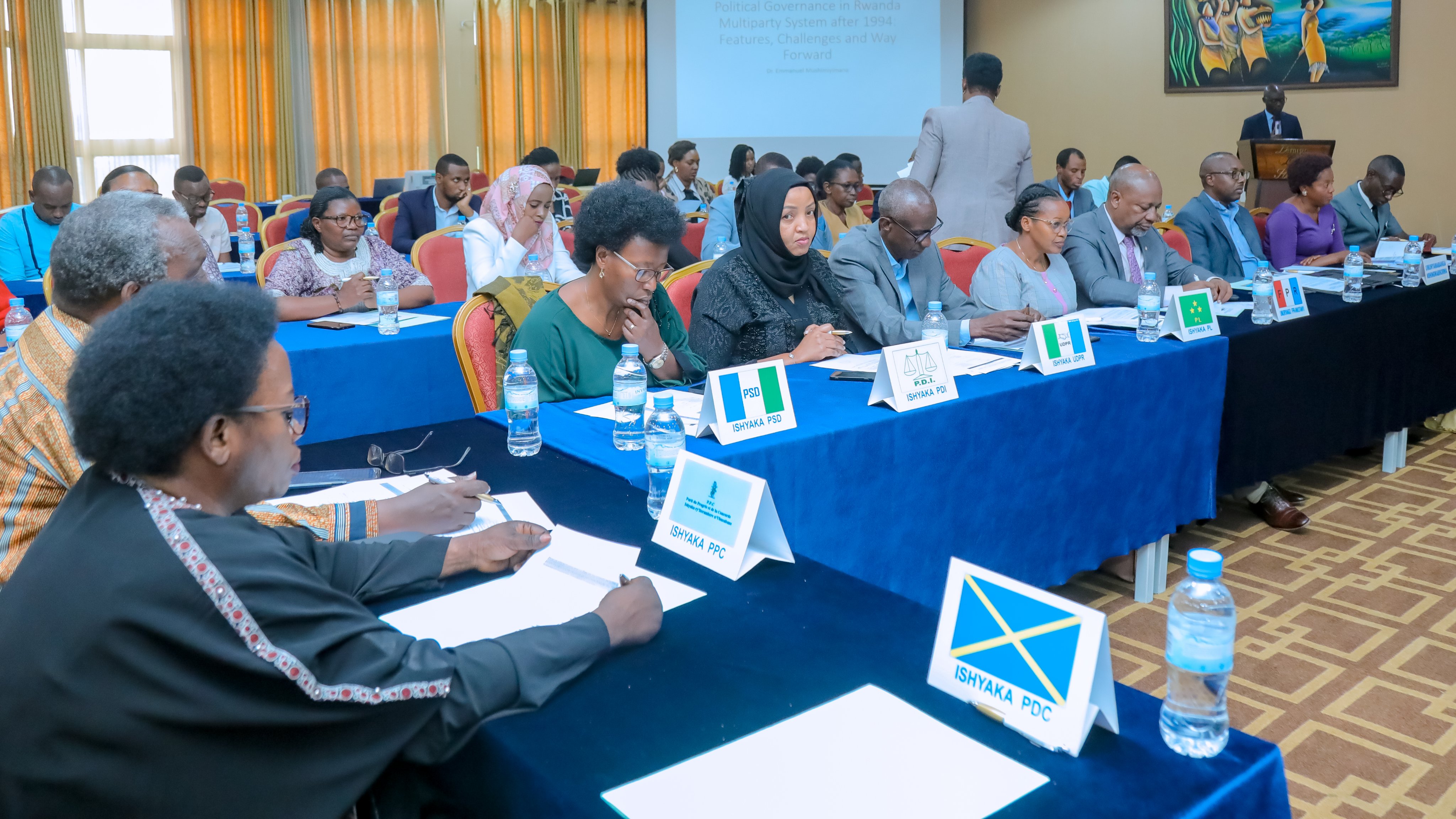Regional
Of Rwanda’s outstanding peaceful atmosphere during general elections
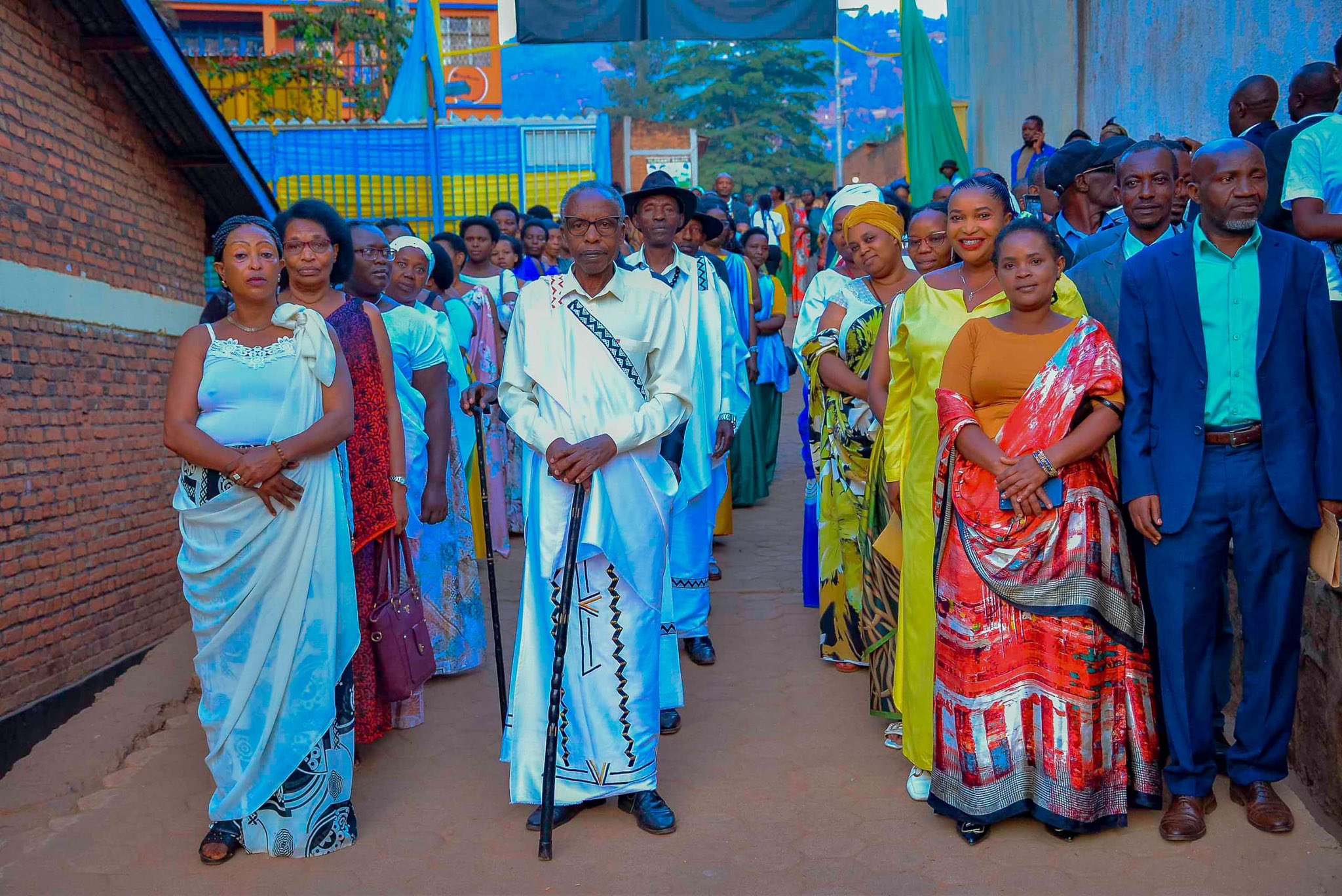
Voters at Kimisagara site, in Nyarugenge District of Kigali City.
On July 15, Rwandans were very
busy casting their votes in presidential and parliamentary elections.
In Kigali, at a voting center
at APACOPE School in Muhima Sector of Nyarugenge District, I heard songs in
which artists were mobilizing people to participate in the elections, as it is
their right to decide their future leaders.
Attractive decorations, mainly
showing the country’s culture, were installed on the entrance and exit of the
voting center; with people having a cup of coffee before or after voting.
Passing by another voting
center in Kimisagara Sector, in the same district, I saw men and women dressed
in traditional “Imikenyero” and “Imishanana” ceremonial dresses.
My cousin, who was riding with
me, asked why Rwandans put on such dresses when they are voting. We have never
seen this thing in Kampala. One of the six grey haired men in our group replied
that “elections in Rwanda are more of festive events than political
events."
International election
observers later jointly issued a statement commending Rwanda for a
"peaceful electoral environment" and diligent management as over nine
million Rwandans took part in the July 14-16 general elections.
Over 1,000 observers from
organizations including the East African Community (EAC), the African Union
(AU), the Common Market for Eastern and Southern Africa (COMESA), the Economic
Community of Central African States (ECCAS), the Eastern Africa Standby Force
(EASF), and Organisation Internationale de la Francophonie (OIF), were
accredited for Rwanda’s elections.
“The electoral, political and
security environment in the Republic of Rwanda before, during and immediately
after the elections has been calm and peaceful,” they noted in a joint
statement issued on July 17.
Rwanda’s election atmosphere remains calm and
peaceful. Joyful faces could be seen nationwide, just because a much
anticipated voting day had arrived.
A journalist working for
Western media – we met in a coffee shop– asked us why she did not hear any gun
fire, confrontations on voting centers, theft of ballot boxes, or at least
burning wheels in the streets. She had traveled to Kigali, for her very first
time, expecting to witness rowdy protests against incumbent President Paul
Kagame who is “authoritarian,” according to the editorial line of the media
outlet she works for.
“I wish even our country would
be led by an authoritarian president like Kagame,” replied my Ugandan cousin.
We all laughed. And, she seemed surprised to get another side of the story
different from the West’s narrative when it comes to Rwanda.
Later, as the provisional vote
count emerged, Kagame had secured an astounding 99.18 per cent of the vote,
leaving his opponents far behind.
His closest rival, Frank
Habineza of Democratic Green Party, has managed only 0.50 per cent of the vote,
while independent candidate Philippe Mpayimana trails with 0.32 per cent.
Habineza and Mpayimana openly
conceded defeat, indicating that for Rwandans, elections are not just a
competition. Whoever is voted for has to fulfill promises he or she made to the
people, and even those rational ones proposed by his opponents. That is why
Habineza and Mpayimana did not play aggressive politics.
Rwandans have a common vision
to develop their country. They avoid
each and everything that can lead to violence. There is no time for ruining the
progress made. All their efforts are put into maintaining or sustaining the
country’s achievements. This is linked to Rwanda’s tragic history and the
lessons learnt from it.
The country also cut costs by
combining presidential and parliamentary elections. While each of the elections
would, in the past, cost around Rwf7.2 billion, their combination trimmed the
budget from Rwf14 billion to Rwf8.1 billion.
Rwanda fully funds its
election budget and does not struggle with any deceptions from foreign
financial support for elections, which would lead to lack of independence in
holding free and fair elections.
More than 100,000 voluntary
polling agents were deployed to facilitate the general elections; indicating
not only patriotism but also Rwandans’ will to contribute to fair and free
elections without hefty cost.
Another laudable move was how
persons with visual impairment were provided with braille ballot papers decide
their future leader. It signaled inclusivity for all.



